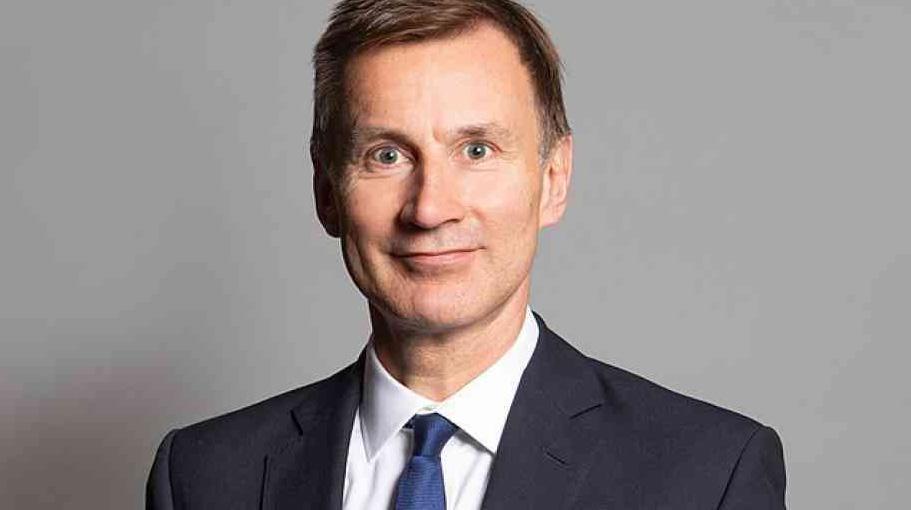
4 minute read
Health Education England merges with NHS England
from Health Business 23.2
by PSI Media
role in improving the quality of health and care services and growing the number of staff working in the NHS over the last decade.
The transfer will see NHS England take over responsibility for all activities previously undertaken by Health Education England, including planning, recruiting, educating and training the health workforce, and ensuring it has the right numbers, skills, values and behaviours in place to support the delivery of excellent healthcare to patients and the public.
“Our colleagues from Health Education England bring a wealth of experience, knowledge and expertise, which will be invaluable in our aim to help the NHS improve the health and care of the people it serves.”
Dr Navina Evans, chief workforce, training and education officer at NHS England, said: “I want to thank every single one of my former Health Education England colleagues and partners for their contribution.
NHS England and Health Education England have legally merged, creating a new single organisation to lead the NHS in England.
The news follows the merger of NHS Digital and NHS England on 1 February. Now, the NHS’s people, skills, digital, data and technology expertise have been brought together into one national organisation to deliver high-quality services for everyone in England.
Health Education England was the body responsible for the education and training of the health workforce and has played a critical
Budget: No major announcements for the NHS

It is expected that, by the end of 2023/24, the new organisation will be between 30-40 per cent smaller than the current combined size of NHS England, Health Education England and NHS Digital.
NHS England’s chief executive, Amanda Pritchard, said: “Today marks a major milestone as we come together as one single organisation. This puts workforce, data, digital and technology at the heart of our plans to transform the NHS, enabling better, more joined-up decision-making at system, regional and national levels, and more effective and efficient use of our resources.
Nhs
Chancellor Jeremy Hunt has unveiled his budget, with no major announcements for the NHS.

Hunt claimed that this was a budget for growth and that long-term, sustainable and healthy growth pays for the NHS.
The budget included plans to make the UK a more exciting place to invest and speed up access for NHS patients to get new drugs.
On NHS pensions, the budget includes changes that will stop over 80 per cent of NHS doctors from receiving a tax charge. Pensions annual tax-free allowance will increase from £40,000 to £60,000 and the Lifetime Allowance will be abolished.
Hunt also said that the NHS workforce plan that was promised in the Autumn Statement will be published shortly.
Hunt also claimed that: “High inflation is the root cause of the strikes we have seen in recent months.”
READ MORE
“There remains so much to do, so now is the time to build on the achievements of Health Education England, NHS Digital and NHS England. Bringing together the three organisations allows us to align service, workforce, and financial planning and delivery. A united approach to improving service, embedding new technology and ensuring the workforce has the skills and numbers to deliver improvements is a huge opportunity for the NHS, one we intend to take together.”
Read More
NHS public satisfaction at record low
The British Social Attitudes survey has revealed that public satisfaction with the NHS has reached the lowest level ever recorded.
Only 29 per cent of people said they were satisfied with the NHS in 2022 – seven percentage points lower than last year.
In 2010, satisfaction was at 70 per cent.
51 per cent of respondents were dissatisfied with the NHS, which is the highest proportion since the survey began.
The main reason people gave for being dissatisfied with the NHS was waiting times for GP and hospital appointments (69 per cent), this was followed by staff shortages (55 per cent) and a view that the government does not spend enough money on the NHS (50 per cent).
Those who were satisfied with the NHS cited that NHS care is free at the point of use (74 per cent), the quality of NHS care (55 per cent) and that it has a good range of services and treatments available (49 per cent).
Responding to the results, an NHS spokesperson said: “While this survey reflects the public’s perceptions of the significant pressure on our services, it is clear the overwhelming majority still very firmly value the fundamental principles of the NHS – which is welcome as we head towards the NHS’ 75th birthday.

“Importantly, even with more people accessing our services than ever before, it also shows strong satisfaction with the range of services and the quality of care patients receive, which is a testament to our hardworking, dedicated staff working across all corners of the NHS.
“However, there is no doubt that the NHS has been under sustained pressure in recent months which has impacted the experiences of patients – at the time this survey was carried out, staff had just treated more people with Covid-19 in hospital over the summer than the past two combined, GPs were delivering millions more appointments each month compared to before the pandemic, and it was the busiest October ever for A&E attendances and the most serious ambulance call-outs.
“The NHS is taking significant steps to further improve patient experience, including our recently-launched blueprint to recover urgent and emergency care alongside continuing to slash the long waits for elective treatment which inevitably built up during the pandemic, and we are working on new plans to boost primary care for patients as well as publishing a long-term workforce strategy shortly.”
The Essential Guide For New Fathers






Available in hard copy or app format: The
New product for 2023: Co-ParentPad for LGBTQ+ non-birthing parents


Follow us on:

@dadpaduk
For more information on DadPad: www.thedadpad.co.uk










